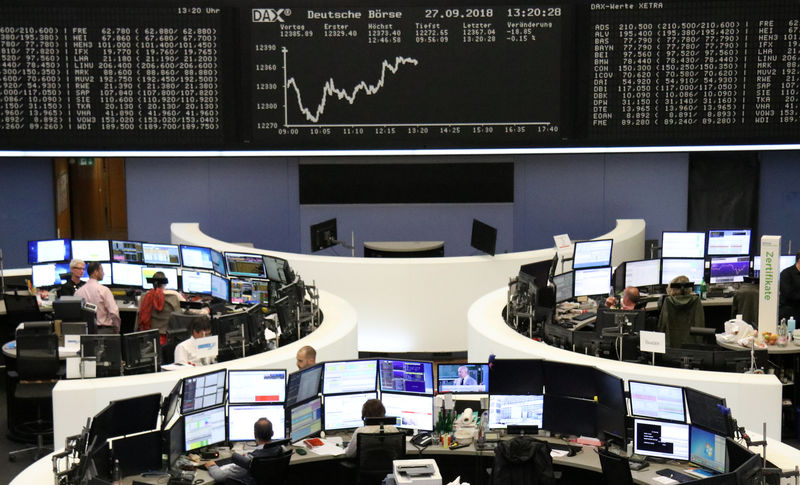By Claire Milhench
LONDON (Reuters) - European fund managers increased their global equity holdings to an eight-month high in September, bringing Japanese stocks to their highest allocation in more than three years, but the UK remained out of favor as Brexit uncertainty rumbled on.
The Reuters monthly asset allocation poll of 20 European asset managers was conducted between Sept. 17-27, when world stocks (MIWD00000PUS) rose to six-month highs and U.S. equities (SPX) scaled new peaks.
In the poll, investors increased their overall equity allocation to 45.1 percent, the highest since January.
Exposure to Japanese stocks rose by 3.3 percentage points to 10.5 percent, levels not reached since May 2015. Japanese bond allocations also edged up to 3.9 percent, the highest since January 2016.
Cedric Baron, head of multi asset at Generali (MI:GASI) Investments, was among those increasing his overweight in equities, saying he expected flows to turn more positive after significant outflows.
He also increased his exposure to Japanese stocks, to benefit from the positive momentum following Prime Minister Shinzo Abe's confirmation as leader of the Liberal Democratic Party in a mid-month vote.
Both Japan's Nikkei (N225) and Topix (TOPX) indices hit multi-month highs in September and look set to end the month up around 5 percent.
U.S., UK and emerging-market stocks were trimmed, as investors eyed a variety of risks, not least the ongoing U.S.-China trade war.
U.S. equity holdings fell half a percentage point to 44.5 percent, a three-month low, as Special Counsel Robert Mueller's investigation of Russian interference in the U.S. 2016 presidential elections turned up the heat on President Donald Trump in September.
Trump has warned that the stock market would crash if he were impeached, but some 80 percent of poll participants who answered a question on that did not subscribe to this view.
"Markets dislike uncertainty, so superficially there are similarities with the (Richard) Nixon impeachment," said Peter van der Welle, a strategist at Robeco.
"However, in contrast with today's stable growth regime, the Nixon impeachment coincided with a very volatile macro-economic climate given the fall of Bretton Woods and a major oil crisis."
President Nixon resigned in 1974, before the House of Representatives could vote on whether to impeach him.
Investors also cut their UK equity exposure to 5.5 percent, a 13-month low. Sixty percent of poll participants who answered a question on Brexit said Britain and the European Union would not agree a post-Brexit trading deal by November.
The two sides remain deadlocked, and the European Commission is preparing for the possibility that Britain may crash out without a deal.
"A deal by November is looking more doubtful," said Salman Baig, an investment manager at Unigestion, noting that the Irish border issue had yet to be resolved.
European asset managers continued cutting their exposure to emerging markets, with equities at 13.3 percent versus August's 14.8 percent, and bonds down at 11.6 percent from 12.8 percent.
Emerging-market equities (MSCIEF) fell to a 15-month low in September and currencies such as the Indian rupee
Two-thirds of respondents who answered a question on the topic said emerging markets were still in the middle of this shock. A more optimistic fifth thought they were nearing the end of the meltdown.
"EM earnings per share revisions are deteriorating amid unresolved challenges," said Pascal Blanque, group chief investment officer at Amundi, highlighting trade disputes and FX spillovers.

But Frank Haertel, head of asset allocation at Bank J Safra Sarasin, said the correction was closer to the end than the beginning, arguing that the fundamentals of most emerging markets were reasonably solid, so an all-out debt crisis was unlikely.